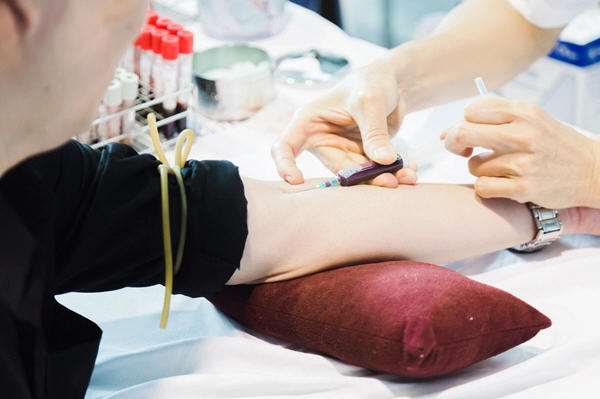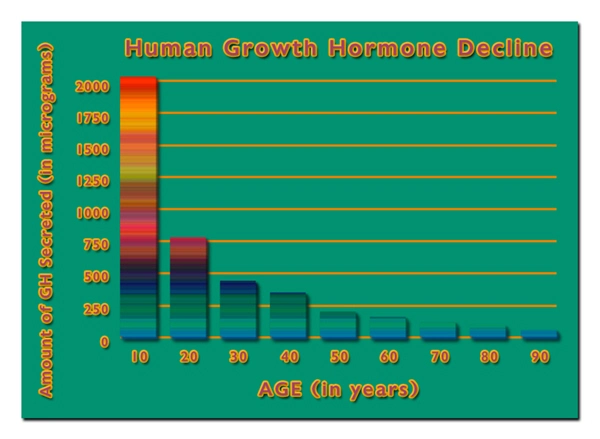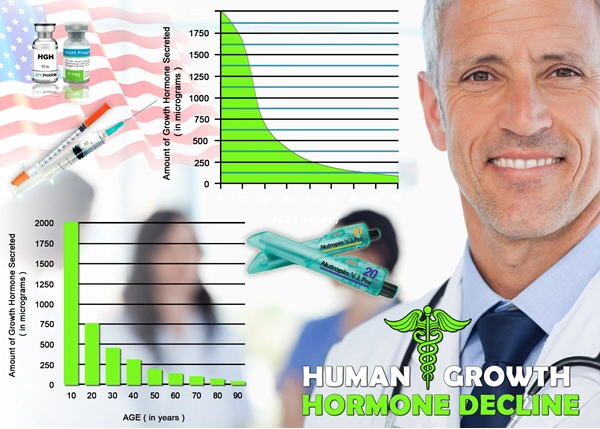Introduction to Soft Erections
Soft erections, medically known as erectile dysfunction (ED), are a common concern among American men, affecting millions across various age groups. This condition, characterized by the inability to achieve or maintain an erection sufficient for sexual intercourse, can be a source of significant distress and can impact quality of life. Understanding the underlying causes of soft erections is crucial for effective management and treatment.
Physiological Causes of Soft Erections
The physiology of an erection involves a complex interplay of vascular, neurological, and hormonal systems. One of the primary physiological causes of soft erections is vascular disease, which can impede blood flow to the penis. Conditions such as atherosclerosis, where arteries become narrowed due to plaque buildup, can significantly reduce the blood flow necessary for a firm erection. Additionally, diabetes can damage blood vessels and nerves, further contributing to ED.
Neurological disorders, such as multiple sclerosis or Parkinson's disease, can also disrupt the nerve signals required for an erection. Hormonal imbalances, particularly low levels of testosterone, play a role as well. Testosterone is essential for sexual function, and its deficiency can lead to reduced libido and soft erections.
Psychological Factors Contributing to Soft Erections
Psychological factors are equally important in the etiology of soft erections. Stress, anxiety, and depression can have a profound impact on sexual performance. Performance anxiety, in particular, can create a vicious cycle where the fear of not being able to achieve an erection can itself cause ED. Relationship issues, such as lack of communication or unresolved conflicts, can also contribute to psychological ED.
Lifestyle and Behavioral Influences
Lifestyle choices play a significant role in the development of soft erections. Smoking, for instance, is a well-documented risk factor for ED, as it can damage blood vessels and reduce blood flow to the penis. Excessive alcohol consumption can also impair sexual function by affecting the nervous system and hormone levels. Obesity is another critical factor, as it is often associated with conditions like diabetes and hypertension, which are linked to ED.
Medications and Soft Erections
Certain medications can contribute to the development of soft erections. Antidepressants, particularly selective serotonin reuptake inhibitors (SSRIs), are known to cause sexual side effects, including ED. Antihypertensive drugs, used to treat high blood pressure, can also affect erectile function by altering blood flow. It is essential for men to discuss potential side effects with their healthcare providers and explore alternative medications if necessary.
Diagnostic Approaches
Diagnosing the underlying cause of soft erections involves a comprehensive evaluation by a healthcare professional. This may include a detailed medical history, physical examination, and possibly blood tests to assess hormone levels and other relevant markers. In some cases, specialized tests such as penile Doppler ultrasound may be used to evaluate blood flow to the penis.
Treatment Options
Treatment for soft erections varies depending on the underlying cause. For physiological causes, medications such as phosphodiesterase type 5 (PDE5) inhibitors, like sildenafil, can be effective in improving blood flow to the penis. For hormonal imbalances, testosterone replacement therapy may be considered. Lifestyle modifications, such as quitting smoking, reducing alcohol intake, and maintaining a healthy weight, are also crucial.
Psychological ED may benefit from counseling or therapy to address underlying issues such as anxiety or relationship problems. In some cases, a combination of medical and psychological treatments may be the most effective approach.
Conclusion
Soft erections are a multifaceted issue with a range of potential causes, from physiological and psychological factors to lifestyle choices and medications. For American men experiencing this condition, understanding these underlying factors is the first step toward effective management and treatment. By addressing the root causes and working closely with healthcare providers, men can improve their sexual health and overall well-being.

- A Comprehensive Guide to Understanding Erectile Rigidity: The Labyrinth of Soft Erections [Last Updated On: February 25th, 2025] [Originally Added On: February 25th, 2025]
- The Gradual Decline: Unraveling the Science of Softening Erections [Last Updated On: February 26th, 2025] [Originally Added On: February 26th, 2025]
- Revolutionizing Gender Stereotypes: Mastering Confidence Amidst Soft Erections [Last Updated On: February 27th, 2025] [Originally Added On: February 27th, 2025]
- Reviving Manhood: The Power of Lifestyle Alterations in Enhancing Erectile Potency [Last Updated On: February 28th, 2025] [Originally Added On: February 28th, 2025]
- Unfolding Silent Battles: Personal Narratives of Men Confronting Erectile Dysfunction [Last Updated On: February 28th, 2025] [Originally Added On: February 28th, 2025]
- The Power of the Psyche: A Deep Dive Into the Effects of Psychological Stress on Male Sexual Health [Last Updated On: March 1st, 2025] [Originally Added On: March 1st, 2025]
- Demystifying the Stigma: An Objective Discourse on Erectile Dysfunction [Last Updated On: March 2nd, 2025] [Originally Added On: March 2nd, 2025]
- Enhancing Erectile Function Through Exercise: Understanding the Benefits of Physical Activity for Combating Erectile Dysfunction [Last Updated On: March 3rd, 2025] [Originally Added On: March 3rd, 2025]
- Nutritional Strategies to Enhance Erectile Function and Health [Last Updated On: March 4th, 2025] [Originally Added On: March 4th, 2025]
- From Flab to Firm: The Role of Weight Loss in Enhancing Male Sexual Health [Last Updated On: March 5th, 2025] [Originally Added On: March 5th, 2025]
- Exploring Sleep's Impact on Erectile Function and Male Sexual Health [Last Updated On: March 5th, 2025] [Originally Added On: March 5th, 2025]
- Enhancing Erection Quality: The Role of Meditation and Mindfulness in American Males [Last Updated On: March 5th, 2025] [Originally Added On: March 5th, 2025]
- Understanding and Managing Soft Erections: Causes, Strategies, and Treatments [Last Updated On: March 6th, 2025] [Originally Added On: March 6th, 2025]
- The Impact of Hormonal Balance on Male Sexual Health: Testosterone, Estrogen, and Erectile Function [Last Updated On: March 7th, 2025] [Originally Added On: March 7th, 2025]
- The Crucial Link Between Blood Flow and Erectile Function: Vascular Insights for Men [Last Updated On: March 8th, 2025] [Originally Added On: March 8th, 2025]
- The Interconnection of Health and Erectile Dysfunction: A Holistic Wellness Approach for Men [Last Updated On: March 9th, 2025] [Originally Added On: March 9th, 2025]
- Aging and Soft Erections: Causes, Management, and Support for American Males [Last Updated On: March 10th, 2025] [Originally Added On: March 10th, 2025]
- Debunking Myths: The Truth About Soft Erections in American Men [Last Updated On: March 14th, 2025] [Originally Added On: March 12th, 2025]
- Navigating the Challenges of Drug-Induced Erectile Dysfunction in American Males [Last Updated On: March 13th, 2025] [Originally Added On: March 13th, 2025]
- Mastering Stress: Strategies to Overcome Stress-Induced Erectile Challenges in American Men [Last Updated On: March 15th, 2025] [Originally Added On: March 15th, 2025]
- Understanding Soft Erections: Causes, Impacts, and Treatment Options for American Males [Last Updated On: March 17th, 2025] [Originally Added On: March 17th, 2025]
- Counseling's Role in Managing Soft Erections: A Holistic Approach [Last Updated On: March 17th, 2025] [Originally Added On: March 17th, 2025]
- Vitamins and Minerals: Enhancing Erection Quality and Sexual Health [Last Updated On: March 17th, 2025] [Originally Added On: March 17th, 2025]
- Herbal Remedies for Enhancing Erectile Function in American Males [Last Updated On: March 18th, 2025] [Originally Added On: March 18th, 2025]
- Smoking's Impact on Erectile Dysfunction: Benefits of Quitting for American Men [Last Updated On: March 19th, 2025] [Originally Added On: March 19th, 2025]
- Enhancing Erection Health: Diet, Exercise, Stress Management, and Holistic Wellness Strategies [Last Updated On: March 20th, 2025] [Originally Added On: March 20th, 2025]
- Soft Erections in Young Men: Causes and Effective Solutions Explored [Last Updated On: March 20th, 2025] [Originally Added On: March 20th, 2025]
- Diagnosing Soft Erections: A Comprehensive Guide to Understanding and Managing ED [Last Updated On: March 20th, 2025] [Originally Added On: March 20th, 2025]
- Alcohol's Impact on Erection Quality: Strategies for American Males [Last Updated On: March 21st, 2025] [Originally Added On: March 21st, 2025]
- American Couples Overcoming Soft Erections: Communication, Therapy, and Lifestyle Changes [Last Updated On: March 22nd, 2025] [Originally Added On: March 22nd, 2025]
- Soft Erections and Mental Health: Understanding and Addressing the Connection [Last Updated On: March 22nd, 2025] [Originally Added On: March 22nd, 2025]
- Genetic Factors in Erectile Dysfunction: Insights and Implications for American Males [Last Updated On: March 22nd, 2025] [Originally Added On: March 22nd, 2025]
- Nitric Oxide's Role in Male Erections: Combating Soft Erections in American Men [Last Updated On: March 22nd, 2025] [Originally Added On: March 22nd, 2025]
- Workplace Stress and Its Impact on American Men's Sexual Health and ED [Last Updated On: March 22nd, 2025] [Originally Added On: March 22nd, 2025]
- Behavioral Strategies to Overcome Soft Erections in American Men [Last Updated On: March 22nd, 2025] [Originally Added On: March 22nd, 2025]
- Cardiovascular Health's Impact on Erection Quality: A Comprehensive Guide [Last Updated On: March 22nd, 2025] [Originally Added On: March 22nd, 2025]
- Biofeedback: Enhancing Erectile Control and Addressing Soft Erections in Men [Last Updated On: March 22nd, 2025] [Originally Added On: March 22nd, 2025]
- Exploring Alternative Medicine for Enhancing Erectile Health in American Men [Last Updated On: March 23rd, 2025] [Originally Added On: March 23rd, 2025]
- Pelvic Floor Exercises: Enhancing Erection Quality and Sexual Health in Men [Last Updated On: March 23rd, 2025] [Originally Added On: March 23rd, 2025]
- Embracing Vulnerability: Redefining Sexual Success with Soft Erections [Last Updated On: March 23rd, 2025] [Originally Added On: March 23rd, 2025]
- Physical Therapy: A Promising Non-Invasive Treatment for Soft Erections [Last Updated On: March 24th, 2025] [Originally Added On: March 24th, 2025]
- Economic Impact of Soft Erections on American Men: Costs and Solutions [Last Updated On: March 24th, 2025] [Originally Added On: March 24th, 2025]
- Soft Erections vs. Erectile Dysfunction: Understanding and Treatment for American Males [Last Updated On: March 24th, 2025] [Originally Added On: March 24th, 2025]
- Soft Erections: Understanding, Communicating, and Overcoming ED in Relationships [Last Updated On: March 24th, 2025] [Originally Added On: March 24th, 2025]
- Exploring Alternative Therapies for Soft Erections: A Comprehensive Guide [Last Updated On: March 24th, 2025] [Originally Added On: March 24th, 2025]
- Innovative Technologies Revolutionizing Erectile Dysfunction Treatment [Last Updated On: March 24th, 2025] [Originally Added On: March 24th, 2025]
- Managing Soft Erections: Understanding, Preparing, and Treating ED Effectively [Last Updated On: March 24th, 2025] [Originally Added On: March 24th, 2025]
- Obesity and Soft Erections: The Crucial Role of Weight Management in Sexual Health [Last Updated On: March 24th, 2025] [Originally Added On: March 24th, 2025]
- Managing Soft Erections: Beyond Standard PDE5 Inhibitors [Last Updated On: March 25th, 2025] [Originally Added On: March 25th, 2025]
- Metabolic Syndrome and Soft Erections: Understanding the Link in American Males [Last Updated On: March 25th, 2025] [Originally Added On: March 25th, 2025]
- Environmental Toxins: A Hidden Threat to Male Sexual Health and Erections [Last Updated On: March 25th, 2025] [Originally Added On: March 25th, 2025]
- Mindfulness Techniques to Manage and Overcome Soft Erections: A Step-by-Step Guide [Last Updated On: March 25th, 2025] [Originally Added On: March 25th, 2025]
- Soft Erections and Self-Esteem: Psychological Strategies for Recovery and Confidence [Last Updated On: March 25th, 2025] [Originally Added On: March 25th, 2025]
- Hormonal Health and Erections: Optimizing Endocrine Function for Better Sexual Outcomes [Last Updated On: March 26th, 2025] [Originally Added On: March 26th, 2025]
- Superfoods Boost Vascular Health, Combat Soft Erections in American Men [Last Updated On: March 26th, 2025] [Originally Added On: March 26th, 2025]
- Soft Erections and Prostate Health: A Vital Connection for American Men [Last Updated On: March 27th, 2025] [Originally Added On: March 27th, 2025]
- Overcoming Soft Erections: Medical, Lifestyle, and Psychological Solutions for American Men [Last Updated On: March 27th, 2025] [Originally Added On: March 27th, 2025]
- Enhancing Sexual Stamina and Managing Soft Erections: A Comprehensive Guide [Last Updated On: March 27th, 2025] [Originally Added On: March 27th, 2025]
- Sleep Disorders Impact on Erections: Insights and Management for American Men [Last Updated On: March 27th, 2025] [Originally Added On: March 27th, 2025]
- Sedentary Lifestyles and Erection Health: Impact and Exercise Solutions for American Males [Last Updated On: March 27th, 2025] [Originally Added On: March 27th, 2025]
- Digital Health Innovations for Monitoring and Managing Soft Erections in Men [Last Updated On: March 27th, 2025] [Originally Added On: March 27th, 2025]
- Understanding and Treating Soft Erections: A Comprehensive Guide for American Men [Last Updated On: March 27th, 2025] [Originally Added On: March 27th, 2025]
- Understanding and Overcoming Soft Erections: A Comprehensive Guide for American Males [Last Updated On: March 27th, 2025] [Originally Added On: March 27th, 2025]
- Chronic Inflammation and Soft Erections: Impacts on Male Sexual Health [Last Updated On: March 27th, 2025] [Originally Added On: March 27th, 2025]
- Erection Physiology: Understanding and Addressing Soft Erections in American Males [Last Updated On: March 28th, 2025] [Originally Added On: March 28th, 2025]
- Vacuum Pumps and Innovative Devices: Enhancing Erection Quality and Sexual Health [Last Updated On: March 28th, 2025] [Originally Added On: March 28th, 2025]
- Medication-Induced ED: Causes, Mechanisms, and Management Strategies for American Males [Last Updated On: March 28th, 2025] [Originally Added On: March 28th, 2025]
- Cardiovascular Exercise Boosts Erection Quality in American Males [Last Updated On: March 29th, 2025] [Originally Added On: March 29th, 2025]
- Stress Management Techniques to Improve Men's Erectile Function: A Comprehensive Guide [Last Updated On: March 30th, 2025] [Originally Added On: March 30th, 2025]
- Understanding Soft Erections: Causes, Impacts, and Embracing New Masculinity [Last Updated On: March 30th, 2025] [Originally Added On: March 30th, 2025]
- Nerve Health's Crucial Role in Enhancing Erectile Function for American Males [Last Updated On: March 30th, 2025] [Originally Added On: March 30th, 2025]
- Innovative Research and Technology Revolutionizing Soft Erection Treatments [Last Updated On: April 3rd, 2025] [Originally Added On: April 3rd, 2025]
- Soft Erections: Causes, Impacts, and Effective Management Strategies for American Men [Last Updated On: April 4th, 2025] [Originally Added On: April 4th, 2025]
- Lifestyle Changes to Enhance Erection Quality and Combat Erectile Dysfunction [Last Updated On: April 5th, 2025] [Originally Added On: April 5th, 2025]
- Navigating Soft Erections: Open Dialogue and Medical Insights for American Men [Last Updated On: April 7th, 2025] [Originally Added On: April 7th, 2025]
- Vascular Health's Crucial Role in Enhancing Erection Quality for American Men [Last Updated On: April 7th, 2025] [Originally Added On: April 7th, 2025]
- Cortisol's Impact on Erectile Function: Managing Stress for Better Sexual Health [Last Updated On: April 8th, 2025] [Originally Added On: April 8th, 2025]
- Soft Erections: Broader Impacts on American Men's Lives and Comprehensive Solutions [Last Updated On: April 8th, 2025] [Originally Added On: April 8th, 2025]
- Relationship Dynamics and Their Impact on Soft Erections in American Males [Last Updated On: April 10th, 2025] [Originally Added On: April 10th, 2025]
- Understanding Soft Erections: Causes, Impacts, and Holistic Management Strategies for American Men [Last Updated On: April 10th, 2025] [Originally Added On: April 10th, 2025]



List of USA state clinics - click a flag below for blood testing clinics.
Word Count: 617



















































